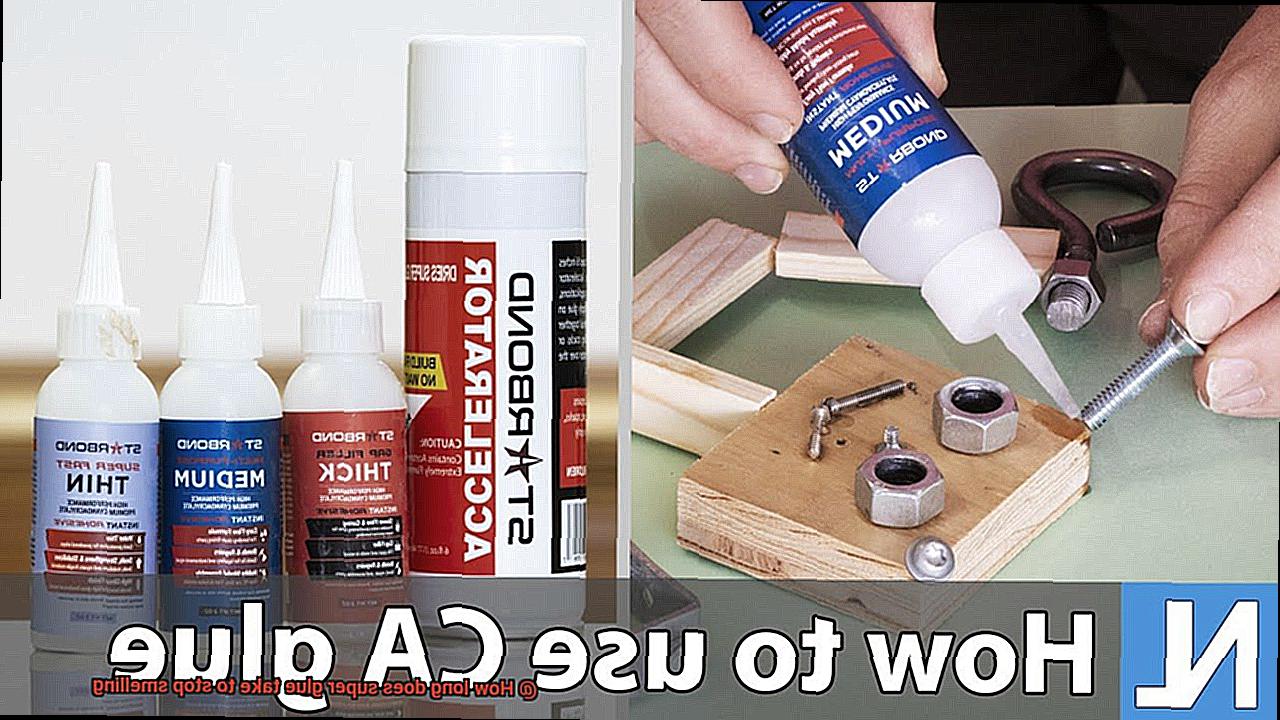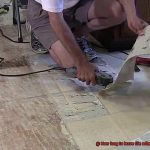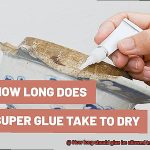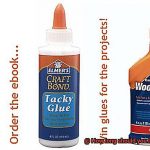Picture this: you’ve just fixed that broken treasure with your trusty super glue, but now you’re stuck battling an overwhelming smell that refuses to fade away. Annoying, right? We all know super glue is a master at bonding, but it also has a knack for leaving behind a potent odor. But worry not. In this blog post, we’re diving headfirst into the world of super glue smells to answer the burning question on every DIY enthusiast’s mind: how long does it take for super glue to stop stinking up the place?
Whether you’re a seasoned pro or just starting out in the crafting game, knowing how long that pesky smell will linger can save you from unnecessary discomfort. Plus, it’ll give you some handy tips on proper ventilation and peace of mind after each sticky situation. So let’s clear the air and get down to business. Join us as we unravel the mysteries behind this lingering scent and discover effective strategies to kick that stink to the curb. Get ready to breathe easy again.
What is Super Glue?
Contents
Super Glue, also known as cyanoacrylate adhesive, is a powerful and versatile adhesive that is widely used for bonding various materials together. It is known for its quick-drying and strong bonding capabilities, making it a popular choice for household repairs, crafts, and even in medical settings.
The main ingredient in Super Glue is the cyanoacrylate monomer, which reacts with moisture in the air to form long chains of polymers. These polymer chains quickly bond together, creating a strong and durable adhesive. This rapid reaction is why Super Glue sets so quickly.
When using Super Glue, it is important to handle it with care as it can bond skin and other materials almost instantly. If accidental contact occurs, it is recommended to rinse the affected area with warm soapy water and seek medical advice if needed.
One common concern with Super Glue is its strong odor. The smell is often described as pungent and somewhat unpleasant. This odor is a result of the chemical reaction between the cyanoacrylate monomer and moisture in the air. As the glue cures and the reaction completes, the smell gradually dissipates.
The duration it takes for the smell of Super Glue to fade can vary depending on several factors. Different brands and formulations may have different chemical compositions, resulting in varying levels of odor. The amount of glue applied also influences how long it takes for the smell to subside. Larger amounts of glue may take longer to fully cure and stop emitting odor.
Environmental conditions such as temperature, humidity, and ventilation also play a role in the odor’s longevity. Proper ventilation in the area where the glue is applied can help facilitate air circulation and speed up the drying process.
In general, Super Glue typically dries within minutes but may take several hours or even days to completely cure and stop smelling. To expedite the process and minimize the odor’s duration, ensure proper ventilation and, if needed, apply a small amount of baking soda near the glued area to help neutralize the odor more quickly.
If the smell persists for an extended period or becomes overwhelming, it is advisable to contact a professional or seek medical advice.
How Does Super Glue Smell?
Super glue, also known as cyanoacrylate adhesive, is renowned for its strong and fast-bonding properties. However, along with its effectiveness, super glue is known for its distinct and pungent smell. It’s a smell that can be described as sharp, acrid, or even chemical in nature. The odor of super glue is hard to miss and can be quite overpowering.
The primary cause of the smell in super glue is the presence of volatile organic compounds (VOCs) in its formula. These VOCs are compounds that have a tendency to evaporate at room temperature, releasing a strong odor in the process. One of the main VOCs responsible for the smell of super glue is ethyl 2-cyanoacrylate. This compound is highly volatile and emits a characteristic odor that many people find unpleasant.
It’s important to note that the smell of super glue can vary depending on the brand or type being used. Some brands may have a stronger odor than others due to variations in their formula. Additionally, factors such as temperature, humidity, and airflow can also affect how long the smell lingers in the air. Higher temperatures and good ventilation can help speed up the dissipation process, allowing the smell to fade away more quickly.
Super glue fumes can be irritating to the nose, throat, and lungs, especially for individuals with respiratory sensitivities or allergies. To minimize exposure to these fumes, it is recommended to use super glue in a well-ventilated area. This helps to ensure that any potentially harmful fumes are quickly dispersed and not concentrated in one area.
After applying super glue, the smell typically dissipates within a few minutes to a couple of hours. However, in some cases, residual odor may persist even after the glue has fully cured. This can be more noticeable when using larger amounts of glue or working in enclosed spaces where the smell can linger for longer periods of time.
To minimize the smell of super glue during application, it is advisable to apply it sparingly and in thin layers. Excess glue tends to produce more fumes and prolong the smell. If the smell becomes overwhelming or causes discomfort, it is best to move to a well-ventilated area and avoid inhaling the fumes directly.
Factors That Affect the Duration of Super Glue Odor
Factors such as the type of super glue, the amount used, ventilation, temperature and humidity, and the surface material can all affect the duration of super glue odor. The type of super glue used is an important factor. Different formulations have different chemical compositions, and some may dry faster while others take longer to cure. Super glues that dry quickly tend to have a shorter duration of odor compared to those that take longer to cure.
The amount of super glue used also affects how long the odor persists. Using a small amount of glue may result in a milder odor that dissipates relatively quickly. However, using a larger quantity can produce a stronger smell that lingers for longer.
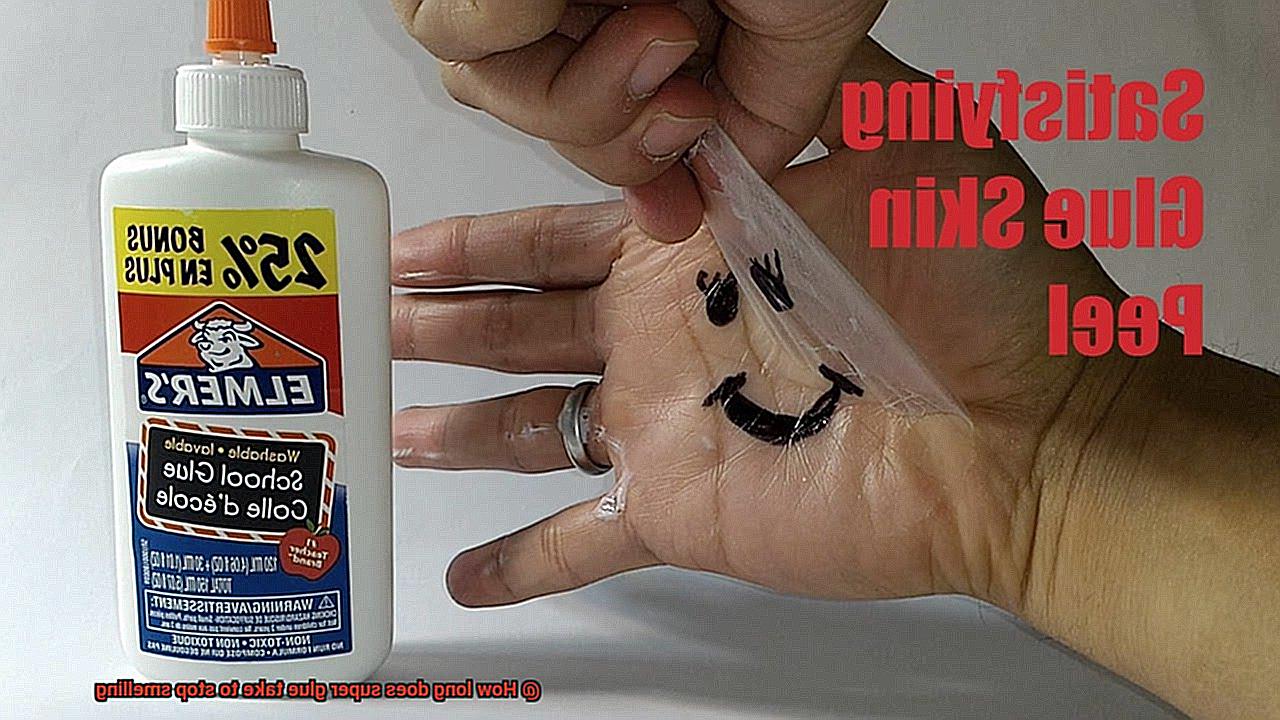
Ventilation is another crucial factor. Adequate ventilation helps disperse the fumes and reduce their concentration in the air. Working in a well-ventilated room or outdoors allows the super glue odor to dissipate more quickly compared to working in a confined space with limited airflow.
Temperature and humidity play a role as well. Higher temperatures accelerate the curing process, causing the glue to dry faster and release its odor more rapidly. Low temperatures can slow down drying time and prolong the presence of the odor. High humidity levels can also extend the curing time and increase the duration of the smell.
The surface material that the super glue is applied to can affect how long the odor lasts. Porous materials like wood or fabric absorb the glue and its odor, making it more challenging for the smell to dissipate quickly. Non-porous surfaces like glass or metal allow for easier evaporation of the fumes, resulting in a shorter duration of the odor.
How Long Does Super Glue Take to Stop Smelling?
Super glue, also known as cyanoacrylate adhesive, is a fast-drying and strong adhesive commonly used for various household repairs and DIY projects. However, one common concern with super glue is its strong and unpleasant odor. When the glue is freshly applied, it emits a pungent smell that can be quite overpowering. So, how long does super glue take to stop smelling?
The duration for which super glue continues to emit a strong smell depends on several factors, such as the type of glue, the amount applied, and the ventilation in the area. Generally, it takes anywhere from a few hours to several days for the smell of super glue to completely dissipate.
One effective way to speed up the process of eliminating the odor is through proper ventilation. Opening windows or using fans to circulate fresh air can help in quickly removing the smell. The more airflow you have, the faster the odor will disperse. So, crack open those windows and let the fresh air in.
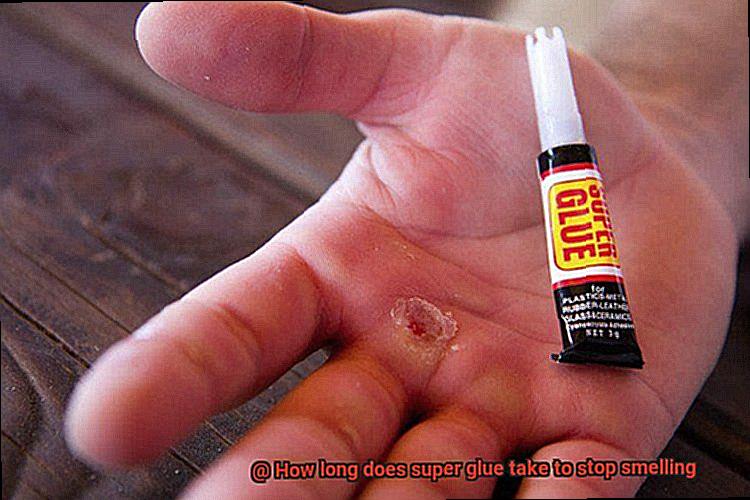
Another tip is to use less glue. Instead of applying a large amount all at once, try using small drops or thin lines of glue. This not only helps reduce the intensity of the smell but also ensures a stronger bond. It’s a win-win.
If possible, allow the glued item to air out in an open space. Placing it outdoors or in a well-ventilated area can aid in faster odor elimination. Just be mindful of the weather conditions and make sure your glued item won’t be affected by rain or extreme temperatures.
Some types of super glue are formulated to have reduced odor. These low-odor or odorless variants are designed to minimize the unpleasant smell associated with traditional super glue. If you find the smell particularly bothersome, opting for one of these options might be worth considering.
Lastly, if you’re really sensitive to the smell or working on a particularly large project, it might be helpful to wear a mask and work in a well-ventilated area with proper protective measures. Your comfort and safety should always come first.
Ways to Reduce the Duration of the Smell
Super glue, also known as cyanoacrylate adhesive, is a powerful adhesive that bonds quickly. However, it is notorious for its strong and lingering odor. If you’re tired of dealing with the smell of super glue long after your project is complete, here are some tips to reduce its duration:
Use Low-Odor or Odorless Super Glue
Opt for low-odor or odorless super glue varieties. These types of glues are specially formulated to have a milder scent compared to traditional super glues. By choosing these options, you can minimize the intensity and duration of the smell.
Ensure Proper Ventilation
Open windows or use fans to circulate fresh air in the room. Good ventilation helps to dissipate the odor more rapidly, making it easier to breathe. The refreshing breeze will sweep away the pungent smell and leave behind a pleasant atmosphere.
Apply Thin Layers
Instead of using thick blobs of glue, apply thin layers. This allows the glue to dry faster, reducing the time it takes for the smell to fade away. Thin applications also ensure a more even distribution of the adhesive, resulting in a stronger bond while minimizing the lingering scent.
Follow Instructions
Different glues have varying drying times. It’s crucial to follow the instructions provided with the glue to ensure proper drying and minimize the duration of the smell. By adhering to the guidelines set by the manufacturer, you can achieve optimal results and reduce any unwanted odors.
Clean Up Excess Glue Immediately
Remove any spills or excess glue before it dries. Cleaning up promptly prevents the odor from lingering in the area. It’s like sweeping away any remnants of the smell, leaving you with a fresh and odor-free space.
Use Primer or Adhesive Promoter
Applying a primer or adhesive promoter before using super glue helps create a barrier between the glue and the surface, minimizing its scent. It’s like adding an extra layer of protection against the strong smell, shielding you from its unpleasant effects.
When to Seek Professional Help for Persistent Odors
Persistent odors can be a nuisance and may indicate underlying issues that require professional help. While there are steps you can take on your own to eliminate odors, there are certain situations where seeking professional intervention is recommended.
Firstly, if you have ensured proper ventilation and allowed enough time for the odor to dissipate, but it still lingers, it could indicate a deeper issue. Seeking professional help in such cases is advised as they can assess the situation and provide guidance on how to effectively eliminate the odor.
Secondly, if the persistent odor is causing health concerns such as headaches, respiratory problems, or allergies, it is important to seek professional help. Professionals can identify the source of the odor and recommend appropriate measures to address the problem. They have the expertise to deal with potentially harmful substances and ensure your well-being.
Thirdly, if the persistent odor is causing damage to materials in your home or workplace, consulting a professional is advisable. They can assess the extent of the damage and provide solutions to prevent further deterioration. Their expertise will ensure that the underlying cause of the odor is addressed effectively.
Furthermore, if you are unable to locate the source of the persistent odor, a professional can help identify the underlying cause using specialized tools and their expertise. They can detect hidden sources of odors such as mold or other contaminants that may be contributing to the problem.
Lastly, if you suspect that the persistent odor may be related to a hazardous substance or chemical, it is crucial to seek professional help immediately. Professionals can safely handle and dispose of any hazardous materials, ensuring your safety and the safety of others.
VlXPOMGFrWI” >
Conclusion
To sum up, the length of time that super glue continues to emit a pungent odor can vary depending on several factors. Different brands and formulations have unique chemical compositions, resulting in varying levels of stench. The quantity of glue applied also affects how long it takes for the smell to dissipate – larger amounts of glue require more time to fully cure and cease emitting an odor.
Additionally, environmental conditions such as temperature, humidity, and ventilation play a pivotal role in determining how long the odor lingers. Adequate ventilation in the vicinity where the glue is used aids in air circulation and expedites the drying process.
Generally speaking, super glue typically dries within minutes but may take several hours or even days to completely cure and stop smelling. To expedite this process and minimize the duration of the odor’s presence, it is advisable to ensure proper ventilation. If necessary, sprinkle a small amount of baking soda near the glued area to hasten the neutralization of the smell.
It is worth noting that certain types of super glue are specifically formulated to have reduced or no odor at all. These low-odor or odorless variations are engineered to mitigate the unpleasant smell associated with traditional super glue.
Should you find that the smell persists for an extended period or becomes overwhelming, seeking assistance from a professional or medical advice is recommended.
Always prioritize safety when working with super glue by utilizing it in a well-ventilated space and adhering to proper handling instructions.

